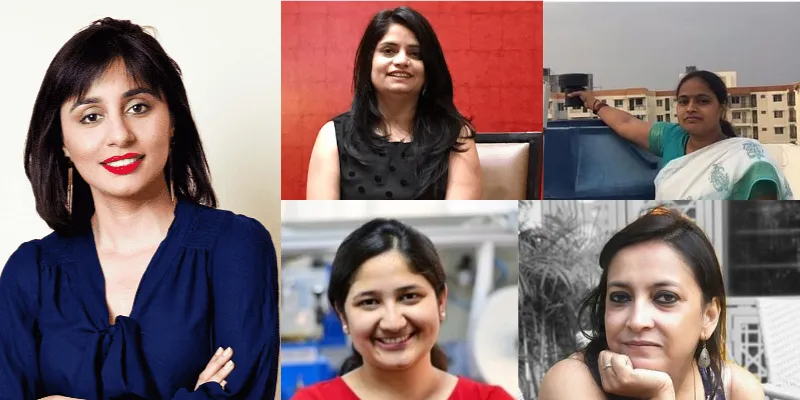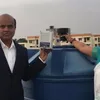Meet 5 women entrepreneurs who have successfully pivoted their businesses in the time of coronavirus
The coronavirus outbreak has led to a large number of women entrepreneurs pivoting to stay operational. Here are a few interesting new pivots they have brought to their businesses.
Difficult times call for innovations and the entrepreneurial spirit to solve problems. Ratan Tata, Chairman Emeritus of have also reflected the same sentiment that creativity and technological innovation can help mankind emerge stronger from any crisis.
The coronavirus pandemic has made it tricky for most business operations to function. Even so, many entrepreneurs have forged new paths to stay afloat. Many others have come forward to battle social challenges, all by modifying their operations and pivoting to newer opportunities.
From repurposing a sanitary napkin machine to produce surgical masks, introducing an IoT-enabled contactless thermometer, to pivoting from travel and tourism to socially distanced wedding events, these women entrepreneurs have shown the way to thrive amid a global pandemic.

(From L to R clockwise) Shivaarti Bajaj, co-founder of BoxEngage; Rakhi Khera, Founder of Abiti Bella Enterprises; Vaishali Chinnayya, Co-founder of Nimble Vision; Shalini Raj, Founder of Journey Weavers; Suhani Mohan, Co-founder of Saral Designs
Rakhi Khera, Abiti Bella Enterprises
Rakhi Khera‘s western and maternity fashion brand saw zero business activity for more than two months. Starting with an initial investment of Rs 5 lakh in 2014 to clocking Rs 3.6 crore revenue last year, the entrepreneur was driven to enter the market with products relevant for the times of coronavirus.
A discussion with her brothers-in-law, one a doctor and another a social entrepreneur, paved the way for her to pivot by manufacturing Enklose, a coverall that can be used in low-risk zones. It is a reusable and washable overall that can be used by domestic workers in large housing societies, beauty salons, and hotel chains but is not a substitute for a PPE kit. She has also introduced a domestic worker kit, which is a coverall with a hood, priced at Rs 999 for a set of two while the former cost Rs 1,199.
Having sold 1,000 overalls to 20 housing societies in Gurugram so far, she is currently in talks with large hotel chains and salon chains for supply.
Shivaarti Bajaj,
Shivaarti Bajaj and her partners who co-founded entertainment tech startup GoParties felt that things were going to be very different post Covid-19.
When the country went into nationwide lockdown on March 24 and encouraged social distancing to stem the coronavirus spread, event discovery and ticketing platform GoParties pivoted and rebranded itself as a digital entertainment platform for content creators, called BoxEngage.
Touted as one of India’s alternatives to the famous social video app TikTok, the platform’s popularity surged 10x within a day of the government banning 59 Chinese apps in India, including TikTok.
However, unlike TikTok which facilitates only short form videos, content creators on BoxEngage can make short and long recorded videos, use the livestream option, and celebrities and influencers can also host private sessions to engage with followers.
With more than a million users on board, the platform saw a whopping 70 to 80 percent organic growth and plans to launch a mobile application soon.
Shalini Raj,
Shalini Raj is one of the many entrepreneurs in the travel and tourism sector, an industry badly hit by the coronavirus pandemic. The former marketing professional at Coca-Cola founded travel startup Journey Weavers in 2015, offering customised and experiential trips for families, milestone occasions, employee incentive plans, and corporate offsite training.
However, cancellation of international and domestic flights during the pandemic meant that many clients started asking for refunds of their advance bookings. To stay afloat, the entrepreneur pivoted into a wedding-focussed startup, something which has always been on her mind.
A team of 25, the startup organises end-to-end weddings with not more than 50 to 60 attendees and ensures not more than two guests are in the same room. It also prepares personalised invites, organises pre-wedding parties, mandap, honeymoon, make-up artists, and gifts for the ceremony.
Additionally, Journey Weavers also takes care of applying for permission from local authorities and making sure lockdown rules are being followed. The startup also ventured into corporate gifting to ensure more revenue streams make at least 50 percent of the revenue it made last year.
Vaishali Chinnayya,
Getting our temperatures checked at every entry point has become the basic way to determine the presence of COVID-19. However, tech entrepreneurs Chinnayya Math and Vaishali Chinnayya believe mass screening will be more difficult in India due to lack of infrastructure and technology.
The duo founded Nimble Vision in 2019 and has been building IoT-based products for water measurement and conservation, with their products deployed in apartment complexes, SEZs, office parks, hospitals, across Bengaluru. Seeing the need for a viable way to detect temperature during the coronavirus outbreak, the duo pivoted and built a contactless mobile-based thermometer called Ni-Varak.
Leveraging Internet of Things (IoT) technology, it enables a contactless way of detecting temperatures, along with geo-location and time. It also registers with people’s Aadhaar cards and helps maintain the data on a remote server that can be accessed by government authorities.
Suhani Mohan, As an entrepreneur, Suhani Mohan has always been one to heed the call of social change. When she learnt about the challenges regarding menstrual health in lower income families, Suhani and her co-founder Kartik Mehta co-founded Saral Designs and developed a machine to provide affordable and hygienic sanitary napkins.
With the outbreak of COVID-19 earlier this year, the for-profit social venture repurposed its machine to produce a three-ply surgical mask to help frontline workers.
While they had designs ready by March 15, and could not start the manufacturing process due to the lockdown, the duo reached out to Anand Mahindra’s assistant and successfully received help from the automotive team of the Mahindra Group.
Producing a range of masks, priced between Rs 4 and Rs 10, the startup has also secured a grant of Rs 40,00,000 from the Marico Innovation Foundation to ramp up production operations.
Edited by Rekha Balakrishnan












